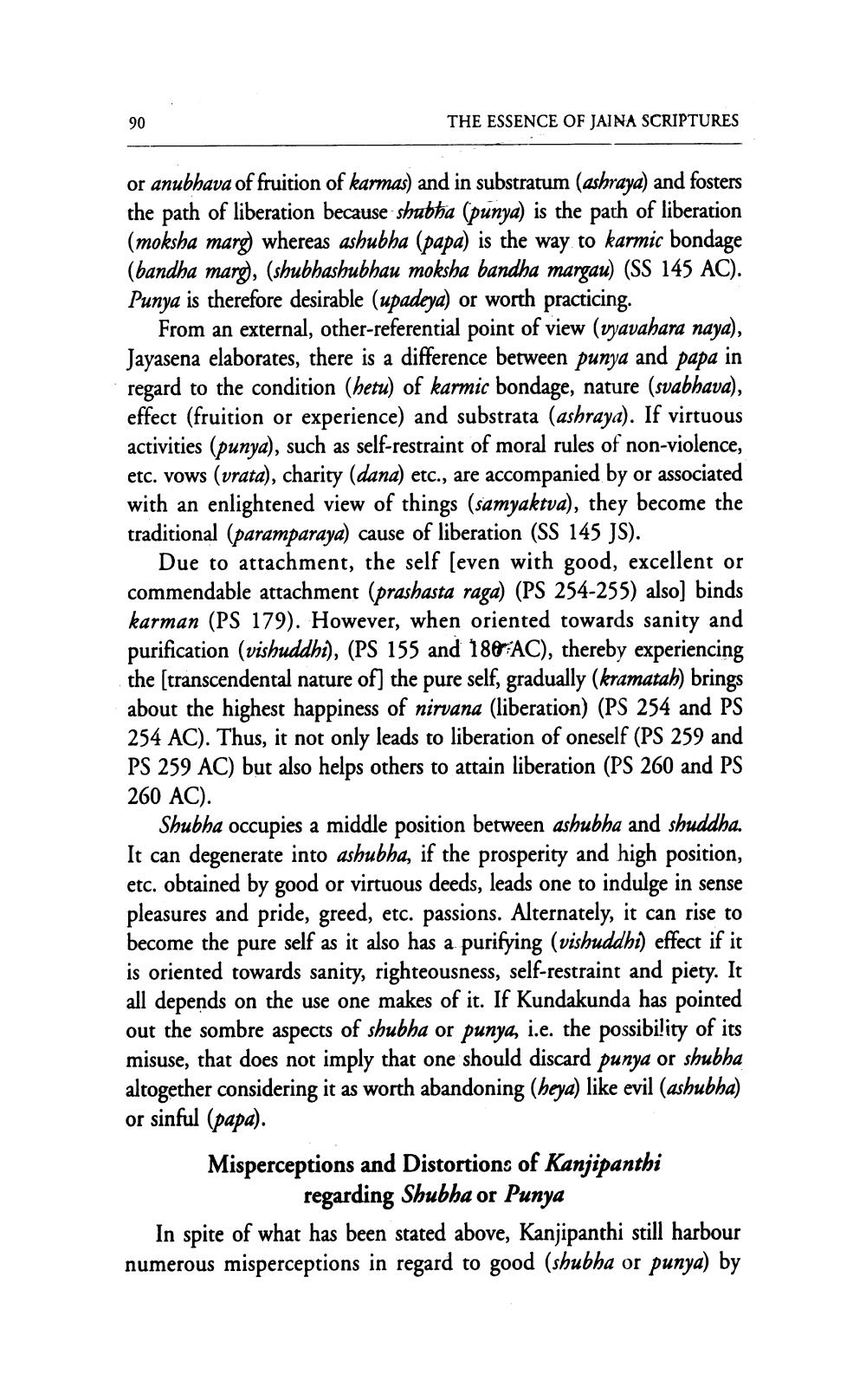________________
THE ESSENCE OF JAINA SCRIPTURES
or anubhava of fruition of karmas) and in substratum (ashraya) and fosters the path of liberation because shubha (punya) is the path of liberation (moksha marg) whereas ashubha (papa) is the way to karmic bondage (bandha marg), (shubhashubhau moksha bandha margau) (SS 145 AC). Punya is therefore desirable (upadeya) or worth practicing.
From an external, other-referential point of view (vyavahara naya), Jayasena elaborates, there is a difference between punya and papa in regard to the condition (hetu) of karmic bondage, nature (svabhava), effect (fruition or experience) and substrata (ashraya). If virtuous activities (punya), such as self-restraint of moral rules of non-violence, etc. vows (vrata), charity (dana) etc., are accompanied by or associated with an enlightened view of things (samyaktva), they become the traditional (paramparaya) cause of liberation (SS 145 JS).
Due to attachment, the self (even with good, excellent or commendable attachment (prashasta raga) (PS 254-255) also) binds karman (PS 179). However, when oriented towards sanity and purification (vishuddhi), (PS 155 and 188AC), thereby experiencing the [transcendental nature of the pure self, gradually (kramatah) brings about the highest happiness of nirvana (liberation) (PS 254 and PS 254 AC). Thus, it not only leads to liberation of oneself (PS 259 and PS 259 AC) but also helps others to attain liberation (PS 260 and PS 260 AC).
Shubha occupies a middle position between ashubha and shuddha. It can degenerate into ashubha, if the prosperity and high position, etc. obtained by good or virtuous deeds, leads one to indulge in sense pleasures and pride, greed, etc. passions. Alternately, it can rise to become the pure self as it also has a purifying (vishuddhi) effect if it is oriented towards sanity, righteousness, self-restraint and piety. It all depends on the use one makes of it. If Kundakunda has pointed out the sombre aspects of shubha or punya, i.e. the possibility of its misuse, that does not imply that one should discard punya or shubha altogether considering it as worth abandoning (heya) like evil (ashubha) or sinful (papa). Misperceptions and Distortions of Kanjipanthi
regarding Shubha or Punya In spite of what has been stated above, Kanjipanthi still harbour numerous misperceptions in regard to good (shubha or punya) by




